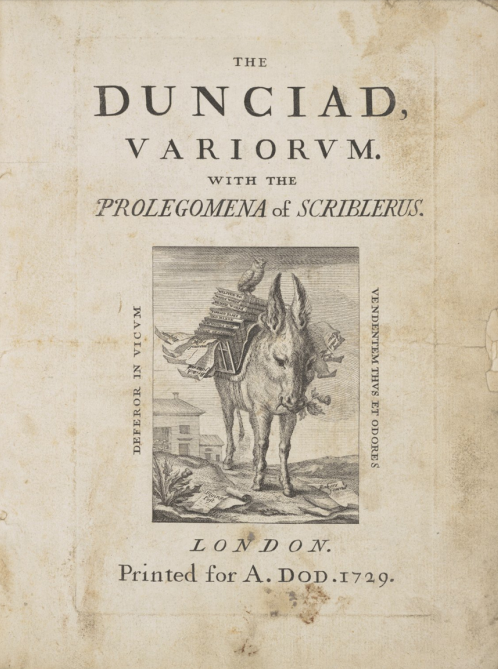
February 16 -Paula McDowell, Making and Breaking the Category of Ephemera: The Eighteenth Century as Test Case
7-9 PM
Room M 101 (Bark room), 66 Fifth Ave., lobby level
“Ephemera” is not a thing but a classification. The category of “ephemera,” like the category of “Literature,” is not transparent, timeless, or universal, but a classification, existing in history, that has done and continues to do powerful rhetorical, practical, ideological, and disciplinary work. This talk begins by suggesting how collectors, librarians and archivists, literary scholars and others have defined “ephemera” since the 1960s. It then steps back in time to the eighteenth-century in Britain, arguing that the categories of “ephemera” and “Literature” were reciprocally constructed as part of an attempt to control the spread of print. For satirists such as Alexander Pope and Jonathan Swift, “ephemera” was not so much a logical or practical category as a smear word that could be applied to just about anything (from weighty folios to broadsides and newspapers). But today, new digital resources are powerfully destabilizing centuries-old categorical distinctions such as “ephemeral” vs. “enduring” works. Understanding eighteenth-century authors’ classification schemes and labors can help us to think through the challenges and opportunities we face as we construct and deconstruct “ephemerality” in the digital age. Caption for image: “Dunciad Variorum (1729), title page vignette” Paula McDowell is Associate Professor of English at New York University, where she teaches eighteenth-century British literature and media and the History of the Book. She is the author of The Women of Grub Street: Press, Politics and Gender in the London Literary Marketplace, 1678-1730 (Oxford, 1998), Elinor James: Printed Writings (Ashgate, 2005), and articles on models of the Enlightenment, the epistemology of ephemera, the eighteenth-century novel, and many other topics. Her latest book, The Invention of the Oral: Print Commerce and Fugitive Voices in Eighteenth-Century Britain(Chicago, 2016), examines the oral/literate binary as a heuristic — a tool for understanding that itself has a history — and argues that the concept of “oral culture” was in fact a back formation of the explosion of print commerce. Continuing this interest in the dynamic relationship between media forms, she is currently working on a study of the multi-media satirist and political commentator John “Orator” Henley and the origins of public debating societies in Britain.